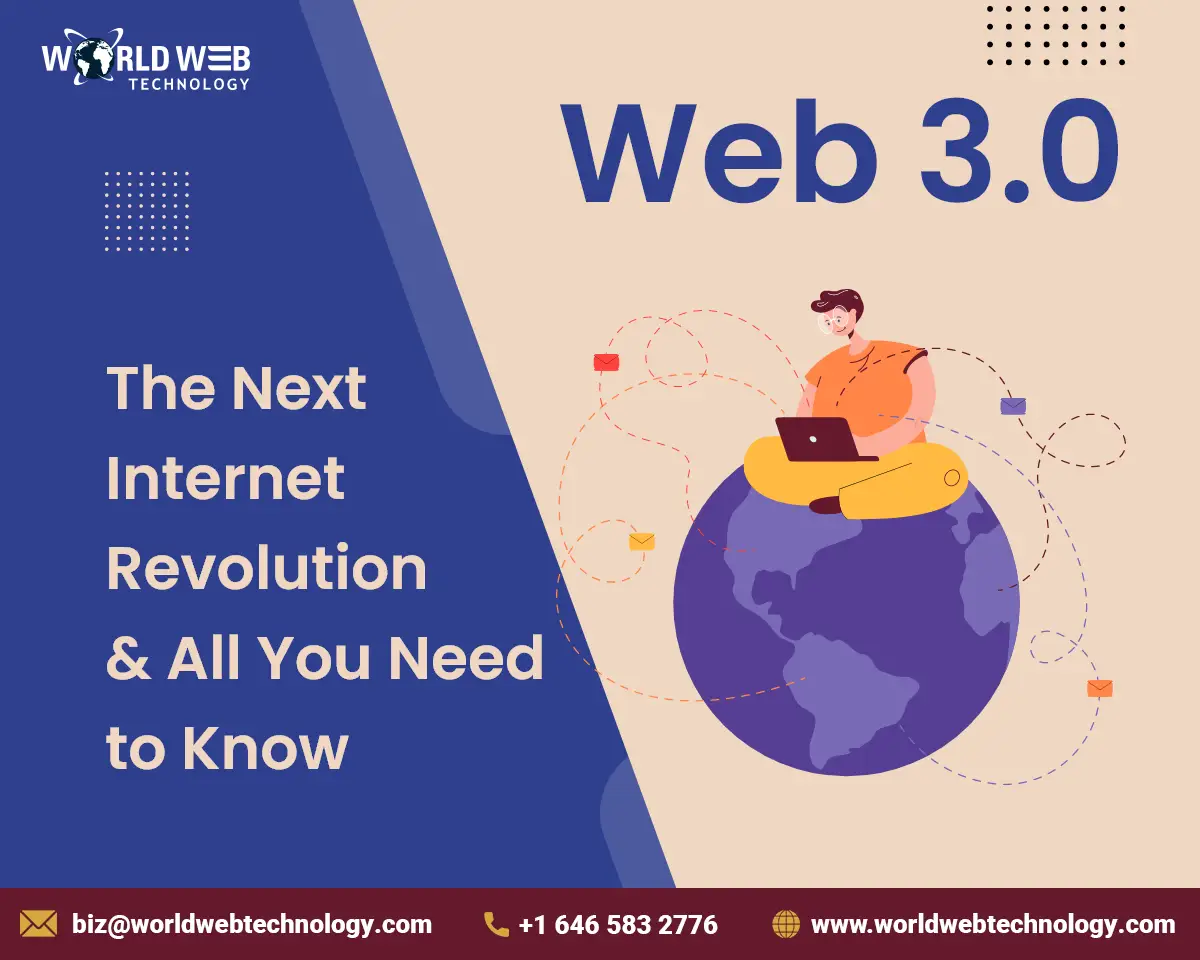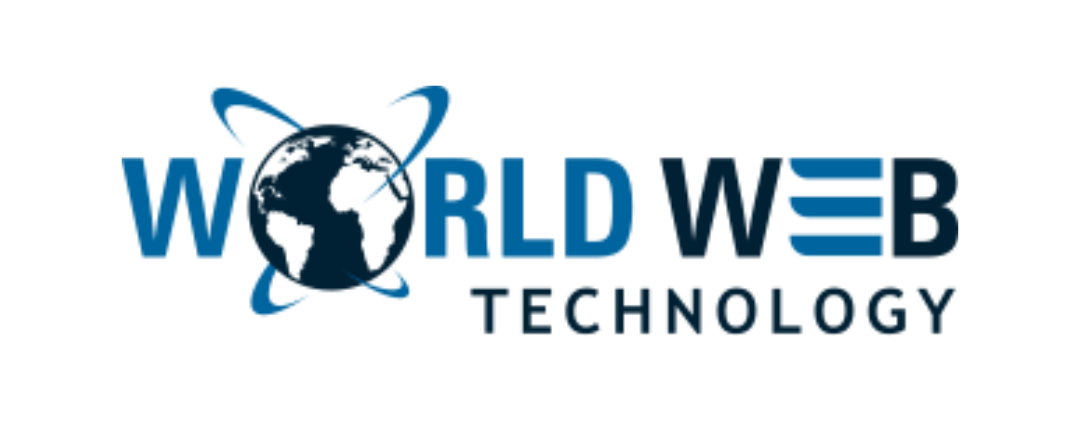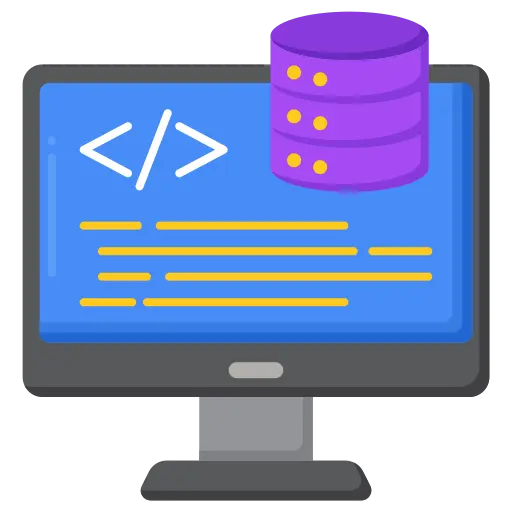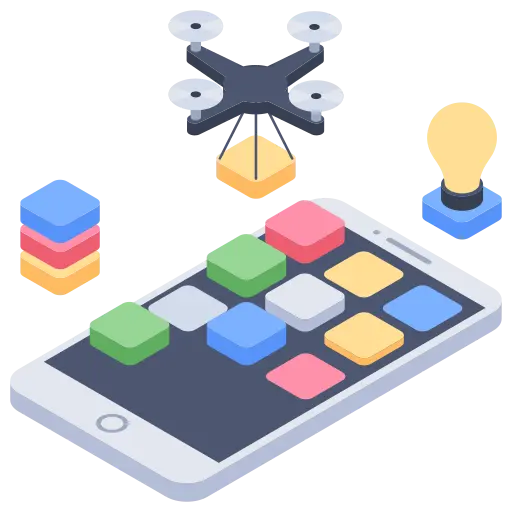Did you know Gartner’s Blockchain Technology forecast, that the technology will be valued at around $3.1 trillion by 2030?
The internet has come a long way since the 1960s. Blockchain technologies like cryptocurrencies, Blockchain, and NFTs are being hailed as the future of the internet. Web 3.0 aka modular web is expected to be more comprehensive and accessible than its predecessors.
What is so special about Web 3.0? It capitalizes on machine learning, AI, and blockchain technology to facilitate communication for humans. Web 3.0 is poised to revolutionize business functions and how it will enhance the internet user experience.
Evolution of Web 3.0
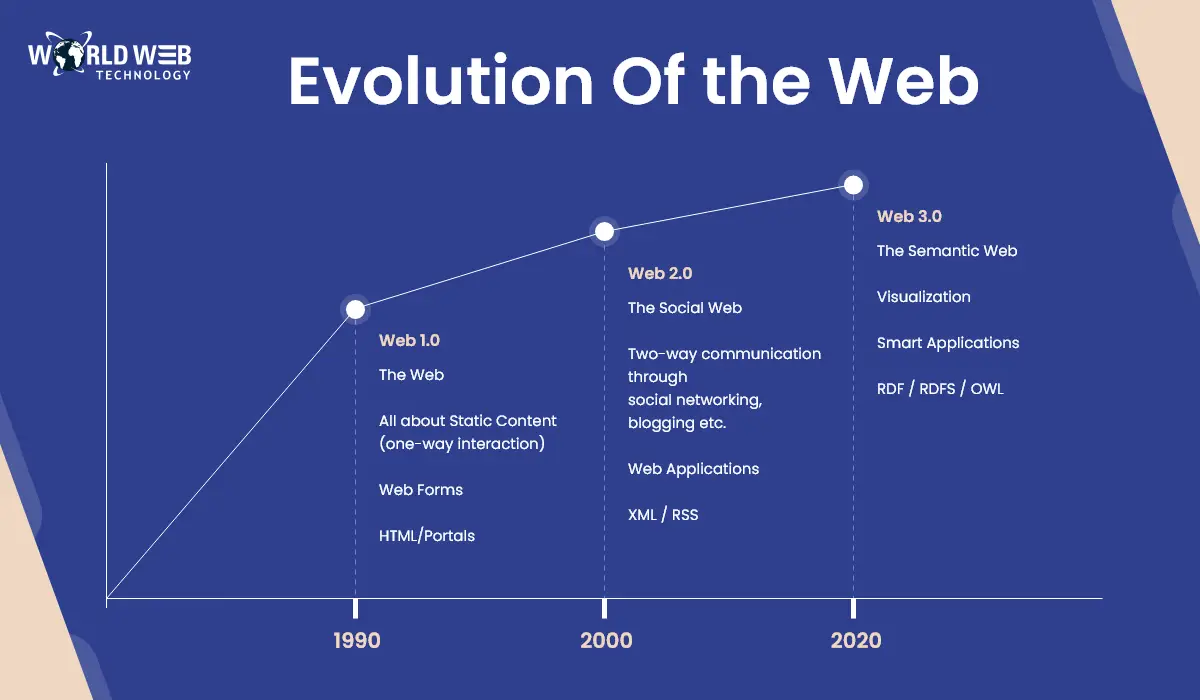
Web 1.0
Back in the day, the internet was not universal, interactive, and full of knowledge like it is today. In the 60s and the 70s, the concept of computer networking was restricted to purely research purposes and its commercial use was unheard of. Web 1.0 aka ARPANET was the predecessor and first advent, popularly known as a military computer network. Web 1.0 limited features with read-only functionalities.
Web 2.0
At the beginning of the 20th century, the most awaited web 2.0 came into the picture. Web 2.0 – came up with interactive features, such as faster and more efficient results and more. Today’s internet is pretty much interactive and motivates users to become active content providers. For example, during Web 2.0, content publishing and management sites like WordPress and social websites like Facebook were taking the world by storm. During this phase, tech leaders and researchers worldwide understood the significance of the internet and hence custom web application development services became widely popular.
Web 3.0
We know that Web 3.0 is still evolving Modern systems are leaning towards artificial intelligence, machine learning, and the internet is expected to follow the same path. As per expert opinions, the future version of the internet will be way more advanced and intuitive than its previous version.
The main objective of web 3.0 is to combine AI, machine learning, and other advanced technologies to create something legendary while achieving transparency, autonomy, and creativity. Steemit, Everledger, and Siri are a few examples of web 3.0.
What is the Importance of Web 3.0?
Many people have talked about how web 3.0 will revolutionize the internet world. What is the importance of web 3.0? Will web 3.0 surpass web 2.0 in all aspects? These are a few questions that will remain unanswered until web 3.0 realizes its full potential, which will take at least a decade or even more to realize.
More than that, the global revenue from Web 2.0 was valued at €29755 in 2020. The number is expected to grow incessantly.
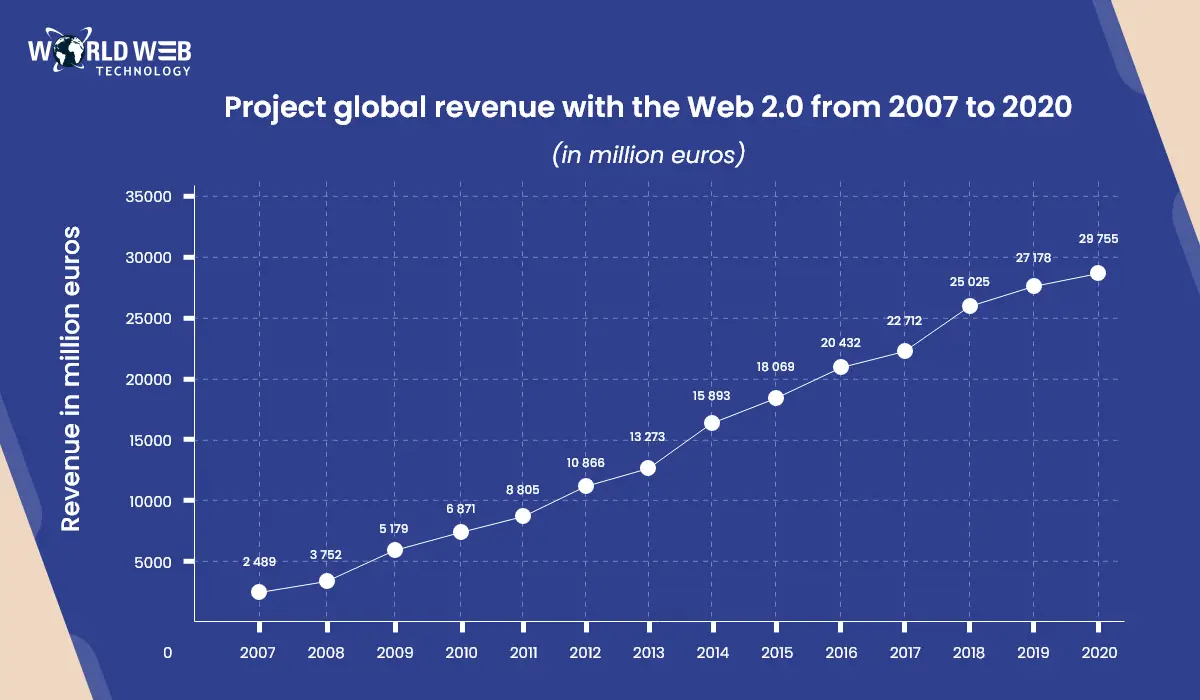
Web 3.0 will have user-centric improvements to the current framework. However, we know about a handful of those trends that will transform our online experience forever.
1. Edge computing
Popular gadgets like smartphones, laptops, home appliances, and even cars are witnessing an increase in processing capacity, owing to servers equipped with advanced technology. Eventually, these technological advancements benefit the end-users. Bandwidth restrictions and transmission delays can adversely impact the process requiring higher bandwidth. It may cause scalability issues.
For instance, a streaming video from a digital device would travel to an online cloud data center where cutting-edge servers would verify it before confirming its authenticity. This is just an example. Imagine if there were thousands of smartphones and other digital devices sending out live videos. Such scalability issues can be addressed by empowering local edge servers, smartphones, and other digital devices with image recognition capabilities within an edge computing framework.
Web 3.0 will allow us to tap into the resources of AI, augmented reality, machine learning, and much more.
2. Low-code apps
Having a robust online presence is essential after the COVID-19 pandemic. People rely on the internet to find information and buy products. At the same time, they need to offer customers an interactive shopping experience. Mobile apps are valuable tools that provide customers with an in-store-like experience, hence businesses must invest in them. Traditional businesses and businesses devoid of an online presence will find it hard to compete with the big players.
Understand that it requires technical knowledge plus dedicated & experienced employees to build online apps. However, web 3.0 has changed the playing field with low-coding and zero-coding platforms. Thanks to these new coding platforms, creating mobile apps will become a piece of cake.
3. Blockchain technology
In layman’s terms, blockchain technology is a record of a time-stamped series of data that is unchangeable and managed by a computer network.
Blockchain forms the foundation of web 3.0 as it transforms data structures in the semantic web’s backend. It helped in creating a governance layer that runs over the internet. Thanks to this governance layer, two strangers can reach an agreement and conduct online transactions.
Blockchain is made up of numerous blocks that hold information. Every block has a unique hash that separates it from others. Furthermore, each block is connected by a chain in chronological order.
Blockchain uses smart contracts to operate and these contracts frame an application’s logic for web 3.0. Anyone who wants to create a blockchain app must set up their code on the shared framework.
4. Decentralized network
There is no need to trust or know anyone in a decentralized blockchain network. This allows different parties to sell or exchange data while retaining ownership and ensuring privacy. Most importantly, there is no room for middlemen in this structure.
Thanks to a distributed ledger, each network member has an identical ledger copy. In case a member’s ledger is modified or corrupted, the other network members will reject it.
5. BaaS
Many businesses, including corporate companies and others, have embraced Baas aka blockchain as a service. BaaS is a cloud-based service that facilitates effective collaboration on various projects using blockchain. Not just cryptocurrency, it is also used in other financial transitions that require transparency and security. Medium-sized and small businesses may find it hard to invest in blockchain because of its cost. BaaS is based on the SaaS (software as a service) model where a company creates, maintains, and operates a blockchain while offering it as a service to smaller companies in return for a fee.
Right now Microsoft and Amazon are working towards developing a blockchain. Once they start providing BaaS services, it can have a profound impact on blockchain apps.
Benefits of Web 3.0
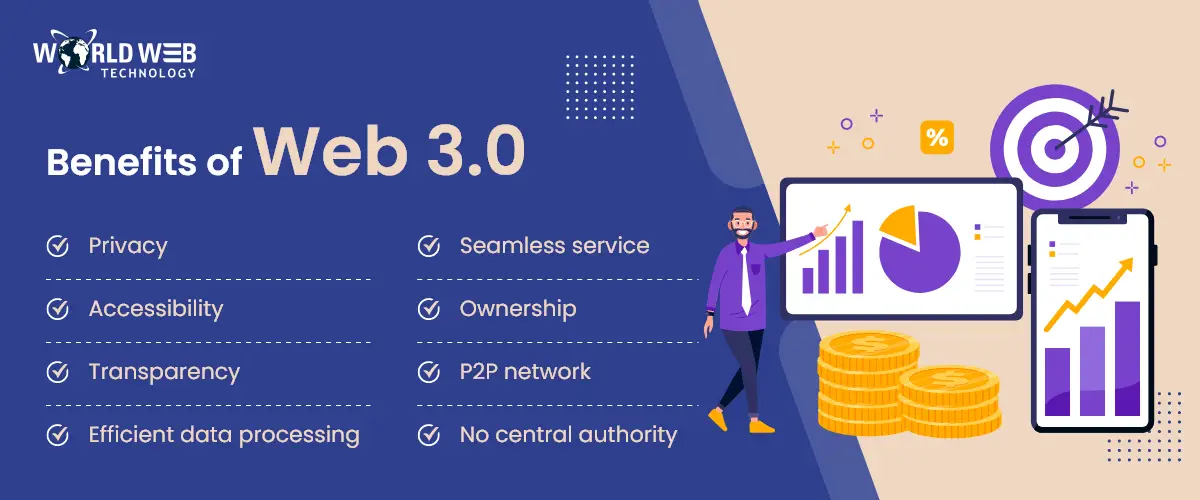
1. Privacy
Data security and misuse have become a cause for concern in the past few years. People are worried about sharing information online. However, Blockchain and cryptocurrency have evolved greatly, thereby securing your data and making it easier for you to trace it online. Due to its decentralized nature, the chances of a single-point failure are eliminated.
2. Accessibility
Information can be tracked from any location or device. By linking your smartphone or other devices to the computer, you can improve the data collection process while enabling global accessibility. No single entity or corporation can control any aspect of the internet. Consequently, decentralized apps/apps can’t be censored, and nor can their access be restricted.
3. Transparency
No matter what blockchain platform you use, you can always track your data and analyze the code. Most blockchain platforms are developed by non-profit organizations, meaning you will get an open-source platform. This will enable open design and development processes. There is no need to trust large corporations or firms.
4. Efficient data processing
Web 3.0 will help greatly in tasks related to problem-solving and knowledge creation. AI will extract valuable information from vast volumes of data. Even users can use web 3.0 to anticipate client demands and provide personalized services.
5. Seamless service
Due to the decentralized data nature of web 3.0, users can access data anytime. Users need to panic in case of server crashes or unexpected outages, they can choose from multiple backups to get their business back up and running. Additionally, no government body or business entity can control/restrict/shut down any service or website.
6. Ownership
Say goodbye to filling out online registration forms. With web 3.0, you will have one profile that can operate across various platforms. You will own the profile and related information without having to share it with other businesses. Exchange data easily, verify its authenticity and even sell it to third parties/advertising companies or businesses if you want to.
7. P2P network
Another excellent feature of web 3.0 is that it employs a peer-to-peer network. This P2P network comprises a network of computers where each computer functions as a node to enable file-sharing within the group. In the absence of a central network to store information, each computer acts as a server. Hence, businesses, individuals, and systems can provide additional capabilities to ensure increased privacy and security.
8. No central authority
Web 3.0 won’t have a central authority. Once an address is created, anyone can join the network and participate. No one will be denied access on the basis of their location or other parameters. Transferring wealth and digital information across various jurisdictions will become simpler and more cost-efficient due to web 3.0.
Disadvantages of Web 3.0
As the saying goes, “there is no rose without a thorn.” Web 3.0, too, has some undeniable flaws which we cannot ignore. Here are some of the cons of web 3.0.
Accessibility Issue:
As devices run on different technologies hence there may be an accessibility issue. Web 3.0 may not be fully functional on less advanced gadgets.
Decentralization may be a threat:
As Web 3.0 comes with a decentralization option, regulating may be an issue. If not regulated properly, it might cause a security breach.
Linked network is good but put one’s personal data at the stack:
Web 3.0 is massive as it comes with a linked network. It’s a good part of Web 3.0, though it can also enable easy access to one’s personal and political data.
How is web 3.0 revolutionizing the app development sector?
1. Semantic Web
All data is stored in a decentralized manner by systems and individuals. Content is generated, shared, and deciphered through search and analysis to make them understandable because the information presented in numbers or keywords is of no use.
2. Artificial Intelligence
One of the main features of web 3.0 is that it integrates AI with web technology, enabling computers to comprehend information like humans. Smarter systems will help users get faster and more accurate results.
3. 3D Graphics Integration
3D graphics are an integral part of websites and services in web 3.0. Be it e-commerce, gaming or the real estate industry, 3D technology is making inroads everywhere.
4. Connectivity
Due to web semantic metadata, information is becoming more connected, allowing users to access all the necessary information. During this process, data remains autonomous. Hence, programs can understand and elucidate information, allowing users to engage with machines effectively.
5. Ubiquity
Multiple apps can access the content because every device is connected to the internet. Therefore, anyone can use the services anywhere.
Conclusion
We are being ushered into a new internet era where humans will retain complete control over data and privacy. They can decide whether companies can exploit the information to achieve their business goals. Soon, all of this will become a reality due to web 3.0.
Web 3.0 offers a multitude of benefits like increased transparency, and customized search results while making the internet simpler, faster, and more interactive. The good news is that web 3.0 is here. Some forms of web 3.0 technology are in the initial stages. However, if you perform a Google search today and use natural language to find results for your query, you will experience the new dawn of the internet era.
If you want more information on web 3.0 or custom web application development services related to it, you know where to find us.
Most Popular Categories
Discover top categories on our blog, featuring WordPress, PHP, eCommerce, and Shopify insights and tutorials.
Featured Insights
Immerse yourself in our passion for sharing the latest industry news, cutting-edge technologies, and insightful articles. Explore the depths of knowledge with us.
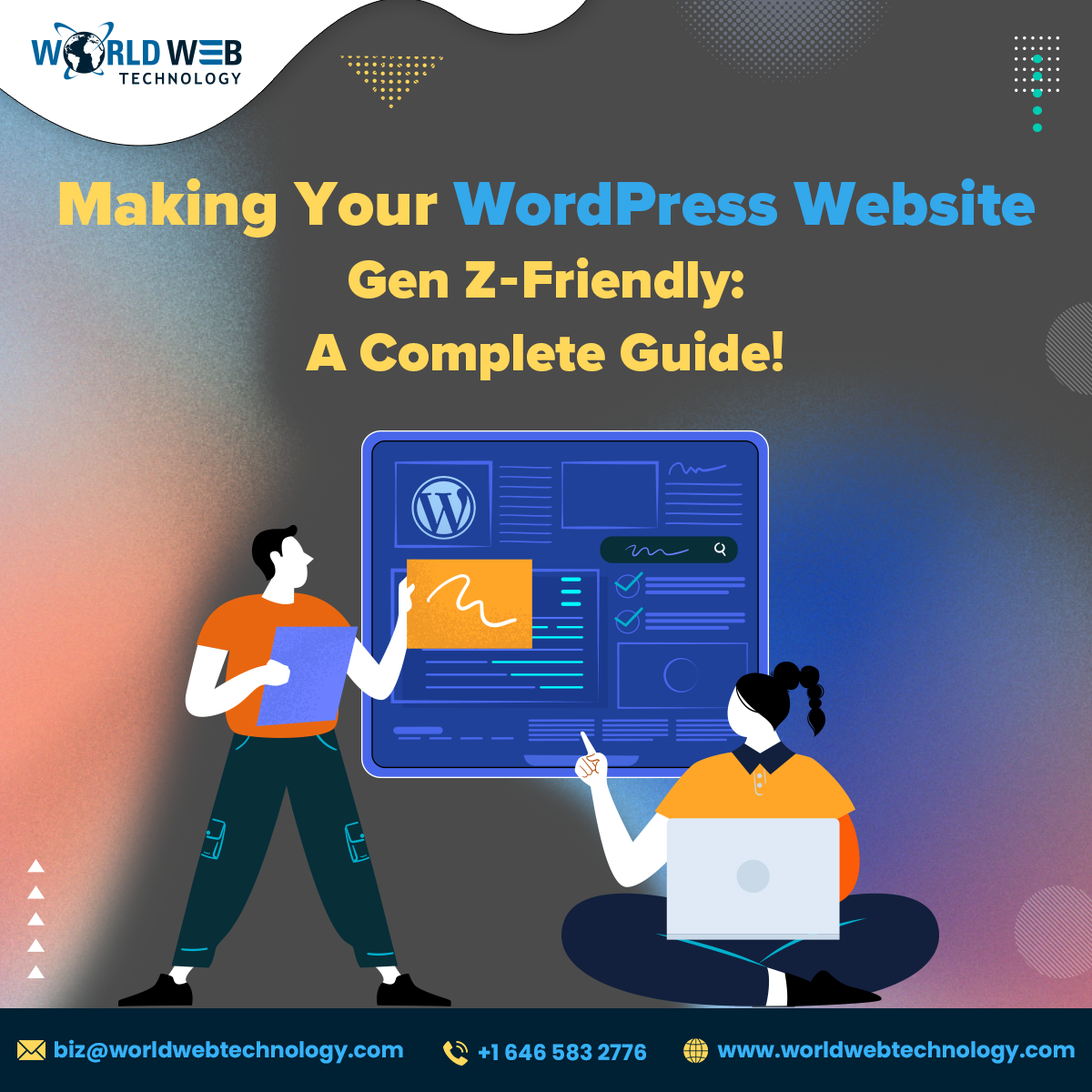
March 26, 2025
Making Your WordPress Website Gen Z-Friendly: A Complete Guide!
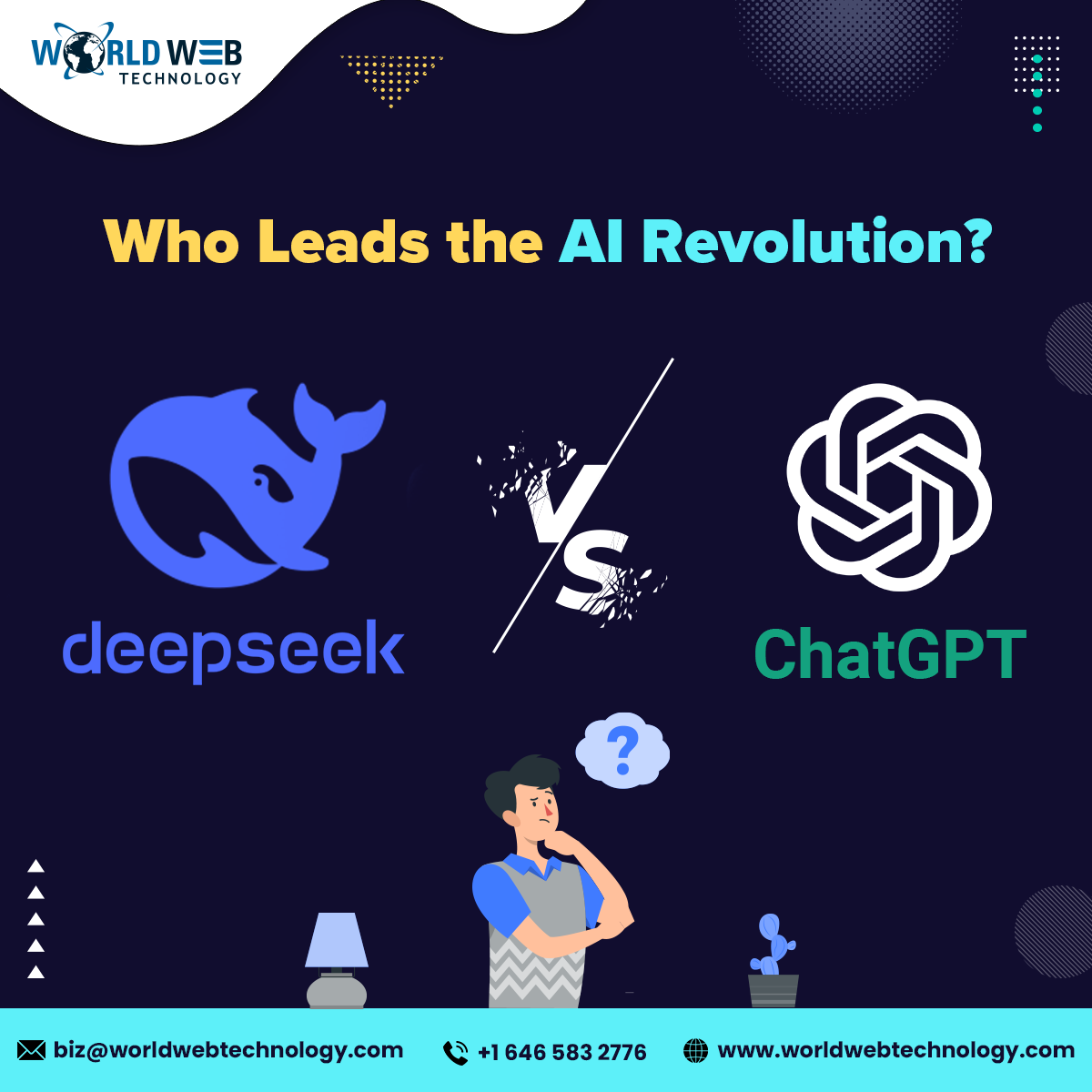
March 20, 2025



